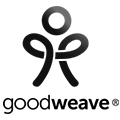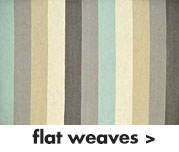You are on our India website. Please select your region to see content specific for your location.
A business model that treasures people and the environment
Our Approach
When everyone reaches their full potential, the entire society is uplifted. Following this vision, in 2004 we founded Jaipur Rugs Foundation (JRF). Its mandate is reaching out to remote rural areas and establish bonds with the village communities, so that they can start weaving not only rugs but also their own lives.
The Foundation is currently working in five
Indian states:
Gujarat, Rajasthan, Uttar
Pradesh, Bihar and Jharkhand.
Impact to lives
Villages
Total Jobs
Healthcare
Education to rural people


THE FOUNDATION
Empowering Rural India
Healthcare
We provide reliable and affordable health care services to the communities that do not have access to these services or even the basic knowledge on how to access them.
Education
We offer holistic development for children and youth and alternative education programs to our artisans in India’s rural communities, with a particular focus on bridging the gender gap.
Financial Inclusion
We help artisan communities to learn more and access banking services, as well as government funds and welfare schemes.

Skill development
We implement skill development programs for a range of underprivileged communities, including inmated and the disabled, to improve their living standards through carpet weaving.
Traceability
From Loom to Home

Thanks to our work on the field, in direct contact with the artisan communities, each of our rugs can be traced back all the way to the person who wove it. This extreme level of traceability comes to life in the Postcard Project, an initiative that gives our customers the chance to exchange thoughts and feelings with the artisan who made their rugs.
Our Footprint
Reducing our Impact on the Planet

Recycled Yarn
The Manchaha collection uses hand-spun leftover yarn batches, thus reducing waste and making the color palette of our rugs as unique as their design.

Low-Impact Dyes
Obtained from GOTS certified and eco-friendly raw colors, the dyes in our rugs are long-lasting, also thanks to a state-of-the-art dying fixation process.
certifications
Maintaining Global Standards


CHILD LABOR FREE
Jaipur Rugs Company, as a socially responsible company, strictly ensures that no child labor is involved in any process of our carpet manufacturing. As a Child-Labor-Free Rug Mark Licensee, Jaipur Rugs binds itself to the contract with Rug Mark Foundation to produce rugs without involvement of child labor, to register all looms with the Rug Mark Foundation, and to allow access to looms for unannounced inspectors.

ISO 9001:2008
quality production standards
ISO 9001:2008 certifies quality and Jaipur rugs is a certified company for its quality production standards. The reason for our progressive growth is our range of quality products which are accepted globally. A quality management team to supervise the quality checkups by the time of production and before shipment of the products. We always strive to provide our clients quality products and get the maximum customer satisfaction by providing world class customer service.

STAR EXPORT HOUSE
Jaipur Rugs Company Private Limited was conferred with STAR EXPORT HOUSE. This is a recognition by the Director General Foreign Trade, Ministry of Commerce, Government of India for stupendous export performance over the years, its continual growth in turnover and earnings from export of goods. The star export house recognition is given to organizations for continual growth and stability in the export performance over the years in efficient management system.

STANDARD 100 by OEKO-TEX®️
Our rugs are STANDARD 100 OEKO-TEX®️ certified which assures that their every component has been tested for harmful substances and is harmless for human health. The testing is conducted against an extensive catalogue of regulated and non-regulated substances which is updated at least once a year according to new scientific knowledge and statutory requirements.


















